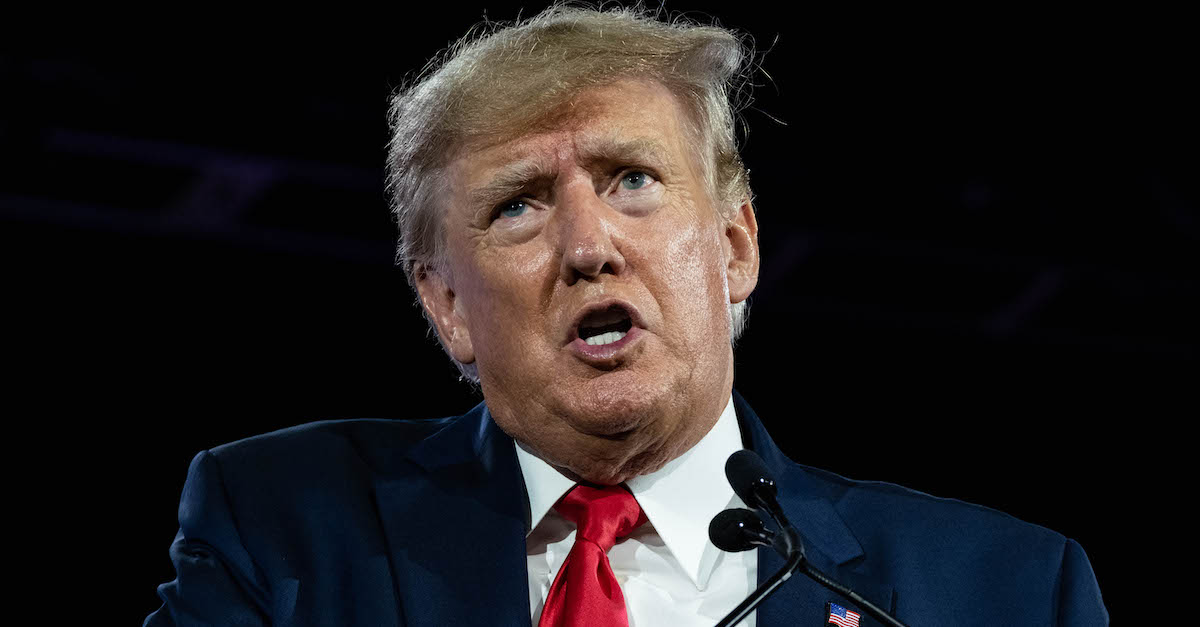
Donald Trump
The Department of Justice is investigating former President Donald Trump’s actions as part of its sprawling Jan. 6 investigation, The Washington Post reported on Tuesday. The latest reporting says that prosecutors are probing the “fake elector” scheme and how involved Trump was in it.
From the Post, citing four people familiar with the matter:
The prosecutors have asked hours of detailed questions about meetings Trump led in December 2020 and January 2021; his pressure campaign on Pence to overturn the election; and what instructions Trump gave his lawyers and advisers about fake electors and sending electors back to the states, the people said. Some of the questions focused directly on the extent of Trump’s involvement in the fake-elector effort led by his outside lawyers, including John Eastman and Rudy Giuliani, these people said.
The reporting came down the same night of Attorney General Merrick Garland’s sit-down interview with NBC’s Lester Holt.
Garland was asked about division in the country and whether it was a factor in the DOJ’s thinking on potentially bringing criminal charges against a former president.
“We intend to hold everyone, anyone who was criminally responsible for the events surrounding Jan. 6, for any attempt to interfere with the lawful transfer of power from one administration to another, accountable,” Garland replied. “That’s what we do.”
Later, Garland was asked whether a Trump 2024 run would give the DOJ pause.
“I’ll say again that we will hold accountable anyone who is criminally responsible for attempting to interfere with the transfer, legitimate, lawful transfer of power, from one administration to the next,” he said.
The Post’s reporting also broke on a day when The New York Times obtained emails showing an Arizona lawyer’s December 2020 email communications with the Trump campaign about sending “fake” electors to Congress on Jan. 6.
“We would just be sending in ‘fake’ electoral votes to Pence so that ‘someone’ in Congress can make an objection when they start counting votes, and start arguing that the ‘fake’ votes should be counted,” attorney Jack Wilenchik reportedly said in an email to Trump campaign adviser Boris Epshteyn.
A follow-up email from Wilenchick reportedly said with a smiley face emoji that “alternative” votes was “probably a better term” than “fake.”
[Image via Seth Herald/Getty Images]